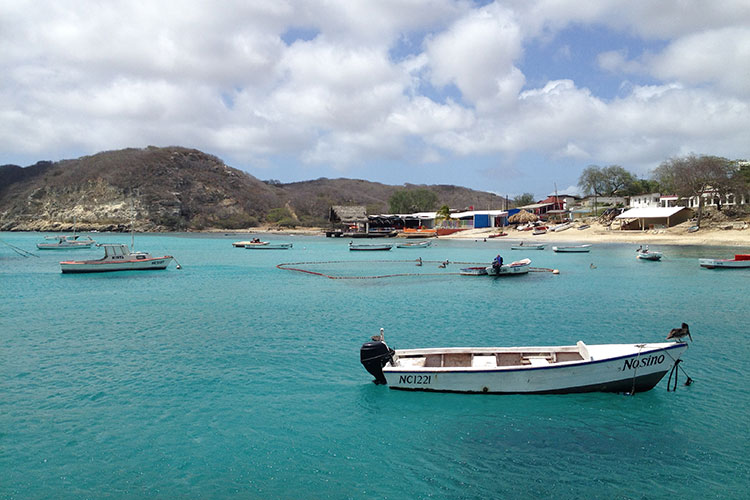How coral bleaching threatens Caribbean communities

Climate change is fueling coral bleaching throughout the tropics, with potentially devastating consequences on coral reef ecosystems and on the people who depend on them for seafood, tourism and shoreline protection.
A new study, published Feb. 20 in the journal Proceedings of the Royal Society B, uses environmental, socioeconomic and management data from 30 Caribbean islands to identify which communities may be most at risk from the social and ecological effects of coral bleaching, which occurs when warm water causes coral polyps to expel algae living in their tissues, resulting in the corals turning white.
The analysis shows that independent island nations, such as Cuba and Jamaica, may be less vulnerable to coral bleaching than island territories like Saint Barthélemy.
“We were surprised to find that independent islands have lower social-ecological vulnerability than territories,” said Katherine Siegel, a Ph.D. candidate in the Department of Environmental Science, Policy and Management at UC Berkeley and lead author on the study. “Territories—such as the Dutch islands of Sint Maarten and Saba— tend to be left out of global assessments of climate change vulnerability. But our results suggest that they need to invest in improving their ability to adapt to environmental changes.”
Corals get their energy—and their technicolor hues—from a variety of microscopic algae that live within their polyps. Hotter-than-average water temperatures trigger corals to expel these algae, leading to bleaching and eventual death. If a bleaching event is prolonged and causes enough corals to die, the entire reef ecosystem can become severely compromised, with ripple effects on surrounding communities.
The study found that, while independent islands are more exposed to environmental conditions that can trigger bleaching events, they are less likely to experience negative socioeconomic consequences because they are less economically dependent on reefs and are better equipped to detect and adapt to environmental changes.
In contrast, the French territory Saint Barthélemy has very low exposure to these conditions, but it experiences high overall vulnerability due to socioeconomic factors such as an economic dependence on reef tourism.
“Bleaching events have become more common and severe in recent decades, a trend that may only worsen as the world’s oceans continue to warm.” says study co-author Sarah Lester, an assistant professor of geography at Florida State University. “It’s essential that we develop a better understanding of how this disturbance impacts coral reef ecosystems and the people that rely on these ecosystems for their livelihood.”
